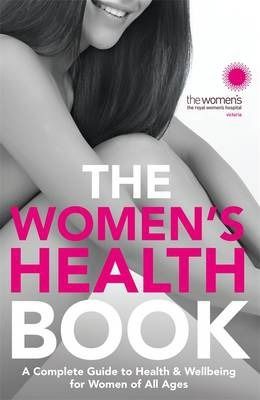Snapshot of women’s health in Italy presented in a book

A snapshot of women's health in Italy presented in a book
They have a longer life expectancy, consume more medications, smoke less and use less alcohol. Fewer women are overweight than men, despite playing fewer sports and being more sedentary.
More attention to gender medicine and women's welfare needed to improve health and quality of life.
Rome, Nov. 29, 2016 – Italian women have a life expectancy of 85 years, compared to 80.3 for men; what were once considered male-dominated diseases such as cardiovascular disease, obesity, and lung cancer are now among the leading causes of death for women. Compared to men, they consume more drugs, with a prevalence of use of 67.5 percent versus 58.9 percent in men, they smoke less – 14.8 percent of women report smoking cigarettes compared to 24.5 percent of men – and they use alcohol less – female consumers at risk are 8.2 percent compared to 22.7 percent of. Although there are fewer overweight women than men (28.2% vs. 44.8%), they are the ones who practice less sports and are more sedentary: only 10.3% exercise continuously and 44.1% are sedentary, compared to, respectively, 27.1% and 35.5% of men.
Taking stock of women's health is the White Paper by Onda, the National Observatory on Women's Health, thanks to the collaboration of Farmindustria, presented today in Rome. Now in its fifth edition, the White Paper on Women's Health, which traditionally photographs the state of health of Italian women, is being produced this year to coincide with the 10th anniversary of Onda, an Observatory established in 2006 with the intent of joining forces and expertise to promote gender medicine in Italy and draw the attention of institutions, the scientific-academic and health-care world as well as the general public to women's health.
In addition, this year it was decided to include in the volume a space dedicated to women's welfare that addresses issues such as reconciliation policies, contractual welfare, pensions and their impact on women's health, as well as an analysis of corporate welfare in particular in the pharmaceutical sector, where there are many women in top positions and where there is a great attention to female workers. "These are all aspects that offer important points of interest and reflection and that Onda wants to commit to deepen, with the aim of offering an ever greater attention to women's health," clarifies Francesca Merzagora, President of Onda. It emerges, for example, how Italian women are subjected to worse working conditions than men, a factor that exposes them to greater risks of stress with repercussions on their health. Better conditions are found in pharmaceutical companies, where the gender gap is much lower than average, because women's jobs are at the top level and there are many initiatives to make work place and time more compatible with private life needs.
In addition to welfare, the topics in the volume range from the safety of birth points to fertility protection, from cardiovascular prevention declined to women to depression in women's life cycles, from the state of the art of oncology research in women to the problems associated with female overweight and obesity, from chronic pain to the impact of autoimmune rheumatic diseases on being a "woman," from dementias to the condition of elderly women and gender-based violence.
"Ours is a challenge undertaken with ideas and momentum, convinced that we can make a contribution to changing the androcentric approach to medicine that, since its origins, has relegated interests in women's health to aspects related to reproduction only," explains Merzagora. "This volume renews our commitment to making the gender approach a tool for health planning and clinical practice, ensuring that medicine is increasingly personalized and based on patient-centeredness, so-called gender-specific. In keeping with a well-established tradition, we have had Farmindustria by our side every two years since 2007 in the creation of the White Paper, and for this edition, on the tenth anniversary of the Observatory, we decided to develop a different approach to the volume in order to give in-depth space to the topics covered in the first Manifesto on Women's Health, presented at EXPO 2015. We also wanted to consider two aspects, that of women's welfare and gender pharmacology, in which it is increasingly necessary to invest, given the impact on women's health and their quality of life."
"Ten years of Onda and edition number five of the white paper on women's health: important milestones," says Farmindustria President Massimo Scaccabarozzi, "to continue to walk together and highlight the very close link between women and drug companies. In fact, female employment in Italy is 43 percent, a share that even exceeds 50 percent in R&S. And for women, many companies have long developed welfare that promotes career, family, and life balance. Not forgetting to take care of their health: there are 850 drugs in development worldwide for diseases typical of the pink universe. Drug companies have focused on women because their success is part of the pharmaceutical industry's success in changing the lives of millions of people for the better".
“Tools such as work-life balance aim to unite – bring ’agree –the different needs of women with the world of work," says Rossana Dettori, National CGIL Executive, Italian General Confederation of Labor. "They arise, therefore, as positive tools necessary to set women free, free to make choices about their bodies, their work and family lives. In recent years, national and European policies have often produced negative constraints for women forcing them to choose between family and work or to accept capestro working conditions with repercussions on their mental/physical health. I believe it is imperative today that government, unions, associations, and public and private employers, working together, put work/life balance back at the center, giving women back their freedom."
"The 2016 Stability Law confirms the government's willingness to encourage the use of corporate, or rather contractual, welfare, including in the disbursement of the variable part of the salary linked to productivity," argues Giovanna Ventura, CISL Confederal Secretary, Confederazione Italiana Sindacati Lavoratori. "Women are a strategic resource for a contractual welfare that together reconciles an answer to the (new) needs for social security and health and growth of the country and its economy".
"Even today there are still too many alibis that prevent us from truly overcoming the differences between women and men," reiterates Tiziana Bocchi, UIL Confederal Secretary, Italian Union of Labor. "With this in mind, we believe that research dedicated to gender medicine can be of fundamental importance. Suffice it to say that one of the consequences of the proclaimed lower income of female workers is that they are less able than men to effectively provide for their own health. What is needed, therefore, is a true cultural change that, through greater attention to the reconciliation of work and life times, knows how to arrive at a true 'sharing' of opportunities, rights and duties between the two genders: because both must also take on that 'care work' that the Constitution entrusts, unfortunately, to only one of the two."



